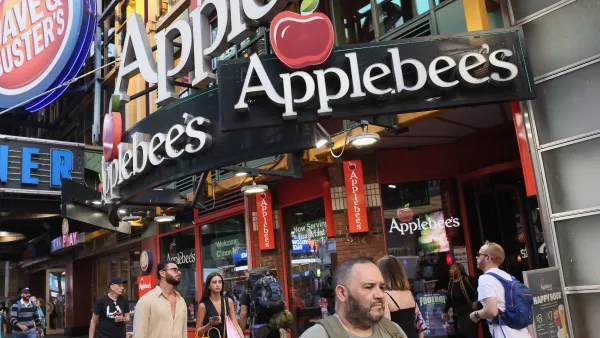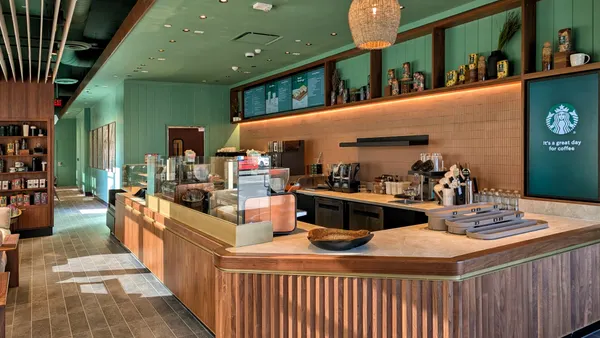Dive Brief:
- Millennials with kids increased their restaurant visits by 5% last year, according to research from the NPD Group. Comparatively, traffic growth to the total restaurant industry was flat in 2018.
- Millennial restaurant visits dropped off after the demographic's teen and young adult years, when they heavily impacted the fast casual, fresh and ethnic foodservice surge, NPD reports. Now that they're parents, they are once again seeking convenience at QSR and fast casual chains, mainly for dinner.
- Per the report, millennial families eat restaurant meals at home 46% of the time and at foodservice establishments 30% of the time, with the remaining 24% split between eating at work, in the car or other locations. Millennial parents will often combine homemade food and restaurant items when preparing a meal. NPD predicts that this trend of hybridized meals will grow over the next few years.
Dive Insight:
Millennials are continuing to reshape the restaurant market through a newfound reliance on QSR and fast casual brands. This convenience-focused demographic has also fueled the rise of delivery apps, paving a new path to growth for casual chains who want access to the lucrative diner set. Typically sluggish chains like Denny's, for example, has taken advantage of this demand and seen an 8% increase in delivery sales. In just two years, the chain's off-premise net sales rose from 4% to 11%.
Burger King and KFC are using mascot branding to attract millennial diners to their products, with the latter using Robocop to spark '80s and '90s nostalgia. Other QSRs, such as McDonald's and Baskin-Robbins are partnering with gaming apps that let players mine for cryptocurrency and other forms of virtual currency, which are exchanged for discounts, coupons and other branded promotions.
Ray Reddy, CEO of food ordering app Ritual, believes that mobile apps are crucial for restaurant survival, especially in the QSR and fast casual segments, as "the bulk of revenues [are] coming from online-delivery services and mobile apps that let others order ahead." With digitally driven millennials wanting quick, convenient meals for their families, the foodservice industry would be wise to continue its efforts to bring competitive mobile marketing and delivery strategies to the table.
As more millennials become parents, it's possible that brands will roll out kid- and parent-focused benefits to differentiate from competitors. Chick-fil-A is a frontrunner in this respect, having launched a "Mom Valet" service in 2016 to millennial customers with young children. The system lets parents with children in tow order at the drive-thru, then enter the restaurant where a Chick-fil-A staff member will have a table ready, complete with high chairs if needed, and serve them. Moves like this could certainly brighten a chain's brand halo, and could capture loyalty across families.









